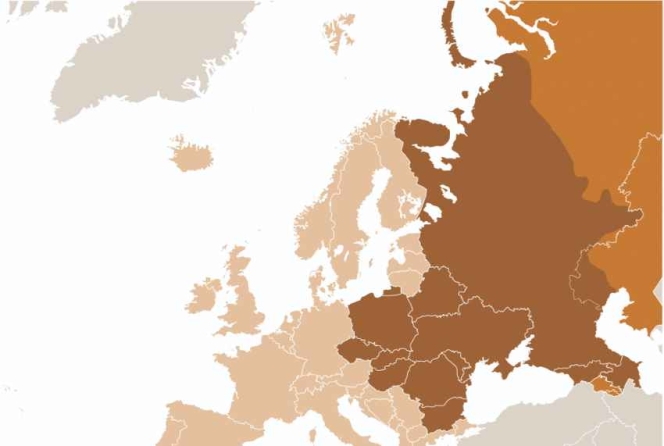
In 2014, Zivojin Sekulic was presenting a concept about Serbia as a future hot spot for tyre production in Shandong, in China, one of the world’s biggest tyre production province. By then, nobody was bullish on Serbia and saw the country as the next tyre production hub, but Sekulic applied analysis and research methods to support his prediction.
Sekulic has been with the industry for over a decade, and has been responsible for developing, managing and supporting operations in Europe, Asia, and the USA.
Several reasons could support Sekulic's claims. One of the reasons for that prediction was geopolitical relations between China, USA, EU and Euroasia. To de-risk trade tension, many tyre companies are exploring alternative production locations, and Serbia is emerging to be a viable place to target major markets. Also, Also, 'made in EU' effects are needed for OEM contracts which also help to brand building.
Having those reasons in mind, Sekulic forecast that Chinese tyre companies will come to the Eastern and South-Eastern Europe to setup tyre plants to avoid anti-dumping duties, apply made in EU effect to their brand and to get some OEM contracts as they need to be close enough to automotive plants due to specific logistic delivery contracts.
Five years later, Linglong Tire in 2019 started to build a tyre plant in Serbia with an investment of almost one billion USD. "Serbia is China's first strategic partner in central and eastern Europe and has a favourable environment for development and investment," said the Chinese tyre company. After the completion of the project, the annual output of various high-performance radial tyre will reach 13.62 million units, with yearly revenue of $ 600 million.
In the same year just a few months later, another Asian Tyre producer, Toyo Tire announced that it will setup a plant in Serbia. The Japanese company will invest around 3.91 million euros in the plant, which will produce tyres for passenger vehicles with an annual capacity of five million tyres. Toyo Tire will start construction of the Serbian Plant in May 2020, and manufacturing operations are expected start in January January 2022, with a capacity of five million tyres annually (based on tyres for passenger vehicles) by the summer of 2023.

Cooper Tire Serbia, a subsidiary of Cooper Tire & Rubber is also increasing production capacity at its Kruševac tyre manufacturing plant. With a strategic manufacturing footprint investment of approximately $55 million in equipment upgrades and facility expansion, the project will increase the size of the Kruševac facility to more than 882,000 square feet.
Cooper Tire Serbia will produce new, larger diameter tyres being demanded in Europe and other global markets. Total annual production capacity at the Kruševac plant will increase by approximately one-third after this expansion, which is expected later this year and will establish a footprint which could further double capacity with additional equipment and people.
"We can say that 2019 was an amazing year for the tyre Industry of Serbia. With already four tyre manufacturing plants of Michelin, Copper Tire, Mitas and Trayal, the country will have two more manufacturing plants soon. That is a huge success for Serbia as we all know that even countries with a bigger population and bigger size have lesser number of tyre plants in Europe," says Zivojin Sekulic.

A chat with Zivojin Sekulic:
Why are tyre companies showing increasing interest in Serbia for setting up plants – and generally in eastern Europe?
The reason for setting up tyre plants in Serbia is because of its specific geopolitical status. Serbia is in Europe, but not in the EU. That means particular goods produced in Serbia can be exported with 0% duty to EU, Russia, USA and countries of CEFTA and EFTA agreements and that's the market of almost one billion people. Comparing to anti-dumping duties for tyres produced in China, sounds like a good benefit, right?
Also, another reason is the label of “Made in EU” for tyre brands. The “Made in EU” effects help tyre companies to become recognisable and increase the prices, comparing to prices of tyres produced in China, and that means more significant profit.
Take the example of Hankook and their plant in Hungary. Only a few years after setting up their plant in Hungary they were selling more than 30% of their total annual production in EU and today with OEM contracts, excellent marketing strategy and outstanding R&D teams, they are in the race to become premium brand. So, imagine one day, maybe in five to eight years from today, Linglong can be close to the premium tyre brand and with the right strategy and marketing activities, if they decide to go that way.
One more reason is OEM contracts. Before setting up the plant in Serbia, Linglong signed a deal with VW and Renault, and now tyres produced in the Chinese company's tyre plant in Serbia will be delivered to these two automotive giants.
What benefits/ incentives that Serbia offers?
There are several benefits that country like Serbia is ready to offer to foreign investors. But I would like to highlight the benefits in general, not to go deeper in an analysis of specific incentives as that depends from situation to situation.
For example, the government is offering land where investors can set up a plant free of charge. There are also some tax incentives for more significant investments which are happening in the tyre industry. For instance, Cooper Tire's expansion project is supported by around $8 million in incentives provided by the Serbian government. Some investors can even get incentives per each employee that they will hire (basically like cashback card ). So, a general conclusion is that country like Serbia is really generous to foreign investors, and they should have that in mind.
Which companies are in the process of setting up?
At this moment Linglong is building the tyre plant in the city of Zrenjanin and Toyo announced that they will start building a plant in the city of Indjija very soon.
On the other side, there are major tyre companies - Mitas, Michelin, Cooper Tire, Trayal, which are producing tyres the country.
What's the future of tyre industry in Serbia?
Even I was right six years ago with a prediction that Asian tyre producers will setup tyre plants in Serbia in the near future that doesn't mean I will be right this time. But I genuinely believe that in Serbia there is a place for one more tyre plant. Specifically, I am thinking about a TBR , Agri and OTR tyre plant that can be built in a place where now Trayal's old plant is located which is still working and producing tyres for agriculture.
Going forward, the future of the Serbian tyre industry will move in another direction. After setting up plants, we will see R&D centres and Testing grounds and facilities in the country. I am predicting this because, for R&D, you need to have an excellent workforce and Serbia really has top-notch engineers and amazing developers. Currently, Continental has an R&D centre in the city of Novi Sad where several hundreds of engineers are employed.
In my working experience of 14 years in the tyre industry and 10 years in the IT sector, and having experience from Silicon Valley, I can tell you that engineers, researchers and software developers in Serbia are outstanding and not expensive like in the western EU or Silicon Valley. So, I am pretty sure that future intelligent tyres that will be based on sensors and specific software and machine learning will be designed and produced in some of the R&D centres based in Serbia.
Regarding testing facilities. Well, why should someone go to Spain or to Nordics to test summer or winter tyres if they can do it in Serbia as our climate is changed, so we have very hot summer and extreme winter, the perfect climate for tyre testing.
Q) Please share some information on your Project SMARTY?

My project SMARTY is related to the tyre industry and related to the development of smart tyres and smart trucks.
Using my vast experience from the tyre industry and IT industry, with a team of developers, I am working on the development of specific sensors, hardware and software that will be used in vehicles to optimise the costs and to prevent the accidents with tyres. We want to predict failure before it happens.
Currently, we have some working models and, shortly, we will start with sales of those models. The final goal is to make SMARTY device to become necessary in every vehicle to become smart or autonomous. Sensors for truck and OTR tyres we will unveil soon.
(Zivojin Sekulic: z.sekulic@gaj.rs)
- Bridgestone India
- Bridgestone Mobility Social Impact Awards 2025
- Jeya Padmanaban
- Safety Research Foundation
- Hiroshi Yoshizane
Bridgestone Honours Social Impact Innovators At 5th Edition Of Mobility Social Impact Awards 2025
- By TT News
- October 16, 2025
Bridgestone India announced the winners of the 5th Edition of its Mobility Social Impact Awards (MSIA) 2025 in Pune, celebrating organisations that use mobility for social good.
The top honour in the Road Safety Innovation and Excellence category went to ALERT (Amenity Lifeline Emergency Response Team) from Chennai for empowering over 450,000 citizens with emergency response skills. Safety Research Foundation (SRF), based in Pune, received a Jury Commendation for its BRACE Project, which transforms school zones with safety audits and infrastructure upgrades.
In the Empowerment of Vulnerable Communities category, The Association of People with Disability (APD), Bengaluru, won the top honour for its Rehab on Wheels initiative, which provides last-mile rehabilitation services.
The winners were presented with their awards by social worker Dr. Girish Kulkarni, founder of Snehalaya.
Hiroshi Yoshizane, Group President, Bridgestone Asia Pacific and Managing Director, Bridgestone India, said: “It is a privilege to honour these changemakers who are redefining mobility for social good. Their work reflects our shared commitment to building inclusive, safe, and empowered communities.”
Jeya Padmanaban, Founding Trustee, Safety Research Foundation (SRF), said, “We are truly honoured to receive the Jury Commendation at the Bridgestone Mobility Social Impact Awards 2025. The BRACE Project reflects our belief that road safety must begin at the community level, where awareness and infrastructure meet action. This recognition strengthens our resolve to continue building safer environments for children and fostering a culture of responsibility and care on our roads.”
| Category | Winner / Commendation | Organisation (Location) | Initiative Focus |
| Road Safety Innovation and Excellence | Winner | ALERT (Chennai) | Empowering citizens with emergency response skills |
| 1st Runner-up | SAFE India (Bhubaneshwar) | Improving safety through #ZoneZero Safe School Zone and Driver Training programs | |
| Jury Commendation | Safety Research Foundation (SRF) (Pune) | Transforming school zones via the BRACE Project | |
| Empowerment of Vulnerable Communities | Winner | The Association of People with Disability (APD) (Bengaluru) | Providing last-mile rehabilitation services via Rehab on Wheels |
| 1st Runner-up | Impact Guru Foundation (IGF-India) (Delhi) | Initiatives like Empower Her and Mission I-M-Possible, focusing on healthcare, education, and skilling | |
| Jury Commendation | Jharkhand Vikas Parishad (JVP) (Jharkhand) | Community-led programs promoting sustainable livelihoods and women’s empowerment |
Alessio Iacovelli Named Deputy Director Replacement Sales West Europe At Linglong Tire
- By TT News
- October 10, 2025
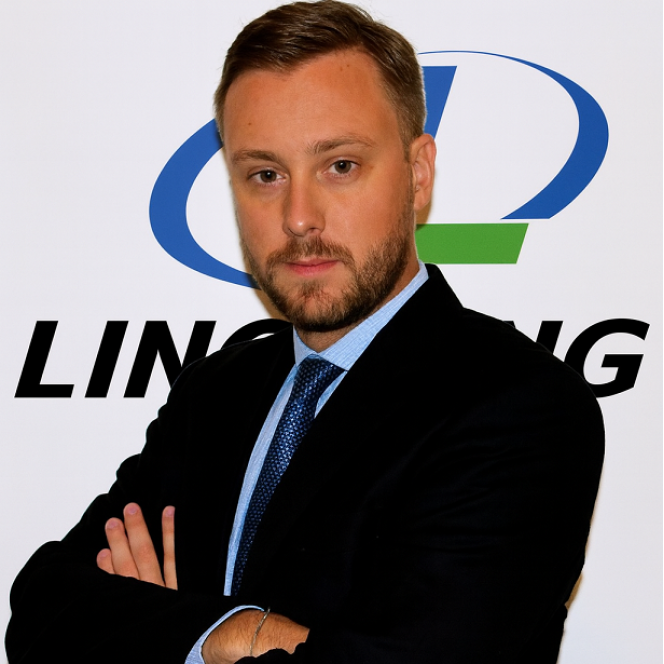
Linglong Tire has announced the promotion of Alessio Iacovelli to Deputy Director of Replacement Sales for Western Europe, effective 1 September 2025. In this elevated role, Iacovelli will take on leadership of the regional sales team with a mandate to accelerate business development. His key objectives will include forging strategic alliances and implementing programmes to strengthen customer loyalty. Iacovelli will report directly to Lisa Zhao, the Director of Replacement Sales for Western Europe, and will collaborate with her to manage key markets, including Germany, the UK, Italy and Spain.
Iacovelli, who began his career with Goodyear and Nexen, first joined Linglong Tire at the end of 2022 as a Sales Manager. In that capacity, he demonstrated significant success in developing the Southern European aftermarket, where he expanded the brand's footprint, defined effective growth strategies and secured robust partnerships with distributors. This strategic appointment and the restructuring of the sales leadership underscore Linglong Tire's intensified focus on achieving its ambitious growth targets across the European continent.
Iacovelli said, "I am very pleased to have been promoted to Deputy Director Replacement Sales West Europe at Linglong Tire. We have fantastic products such as the Sport Master 4S and the Sport Master Winter, both successfully tested in the recently published tyre tests. We have a state-of-the-art development centre in Germany and a new tyre plant in Europe and are successful in original equipment – ideal conditions for achieving our ambitious goals together with my team and the colleagues in Hannover and continuing to grow, especially in Europe."
ARLANXEO To Close French Plant As Chemicals Sector Struggles
- By TT News
- October 10, 2025
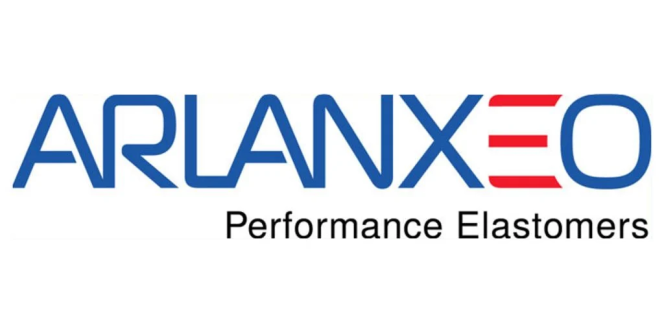
German synthetic rubber maker ARLANXEO has launched consultations with worker representatives over the potential closure of its Port Jerome facility in France, citing persistent weak demand and declining competitiveness in the European chemicals industry.
The company, which is majority-owned by Saudi Aramco, had begun an information and consultation period with the Works Council at the site, located in northern France. A final decision on the closure will be taken after the mandatory consultation process concludes and approval is obtained from the French labour authorities, DREETS.
“The European chemical industry continues to face persistent weak demand and declining competitiveness driven by rising costs, unbalanced global markets, and increased regulatory pressure,” said Stephan van Santbrink, ARLANXEO chief executive.
“These conditions have generated a significant burden on the sector across the regional value chain. ARLANXEO has not been an exception to these challenges. The Port Jerome site has remained in a structurally loss-making position. Despite numerous improvement efforts, we do not foresee a viable path to a sustained structural improvement.”
The company did not disclose how many jobs would be affected by a potential closure, nor did it provide details on the facility’s production capacity or annual output.
Van Santbrink acknowledged the impact on workers, saying: “We recognise the impact a potential closure may have on our employees, and we regret the need to consider these steps. We will continue to treat all employees with respect. If we decide to cease operations at the site, we will do our utmost to assist in finding alternative solutions for all impacted employees. In addition, we intend to provide impacted employees with a social plan which reflects their valued contribution to ARLANXEO.”
The announcement adds to a growing list of European chemical producers struggling with high energy costs, sluggish demand and competition from lower-cost producers in Asia and the United States.
ARLANXEO said it would work closely with all affected internal and external stakeholders to minimise the impact of the intended closure.
Continental Appoints Managers For Global Purchasing And Original Equipment Business
- By TT News
- October 07, 2025
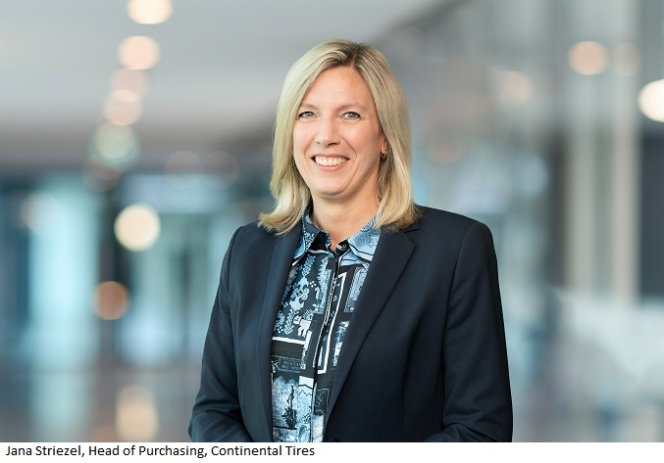
Continental's Tires group sector has strengthened its leadership team with two key internal appointments, effective 1 September 2025. Jana Striezel has been named the new head of global purchasing for Continental Tires, while Dennis Bellmund has assumed leadership of the global original equipment business for both passenger and commercial vehicles. Both executives will report directly to Christian Kötz, the member of Continental AG's Executive Board who leads the Tires group sector.
In her new capacity, Striezel will oversee worldwide strategic and operational purchasing. She brings extensive experience from the automotive industry, having previously held several procurement management roles at Renault, where she led purchasing for the Renault brand and its alliance with Nissan and Mitsubishi in Europe. Her career began at Volkswagen in 2014.

Bellmund, who has a 25-year tenure with Continental, steps into his role following the departure of his predecessor, Manja Greimeier, to the ContiTech sector. His extensive background within the company includes recent responsibility for Continental’s tyre retail operations, alongside prior leadership roles in EMEA supply chain management and sales direction for the European replacement tyre business. These appointments signal a strategic reinforcement of Continental's tyre division leadership.
Kötz said, “We’re delighted to welcome Jana Striezel, a highly skilled manager, to our team. She brings extensive expertise in international procurement and will focus on driving forward our purchasing strategy. In Dennis Bellmund, our global original equipment business has gained a highly experienced leader. Thanks to his many years at Continental, he is familiar with our company and our customers’ needs from many different angles. On behalf of the entire management team, I wish both of them every success in their new roles and look forward to working together.”
“On behalf of the entire team, I would like to thank Manja Greimeier for her successful leadership of our original equipment business and wish her all the best and continued success,” added Kötz.


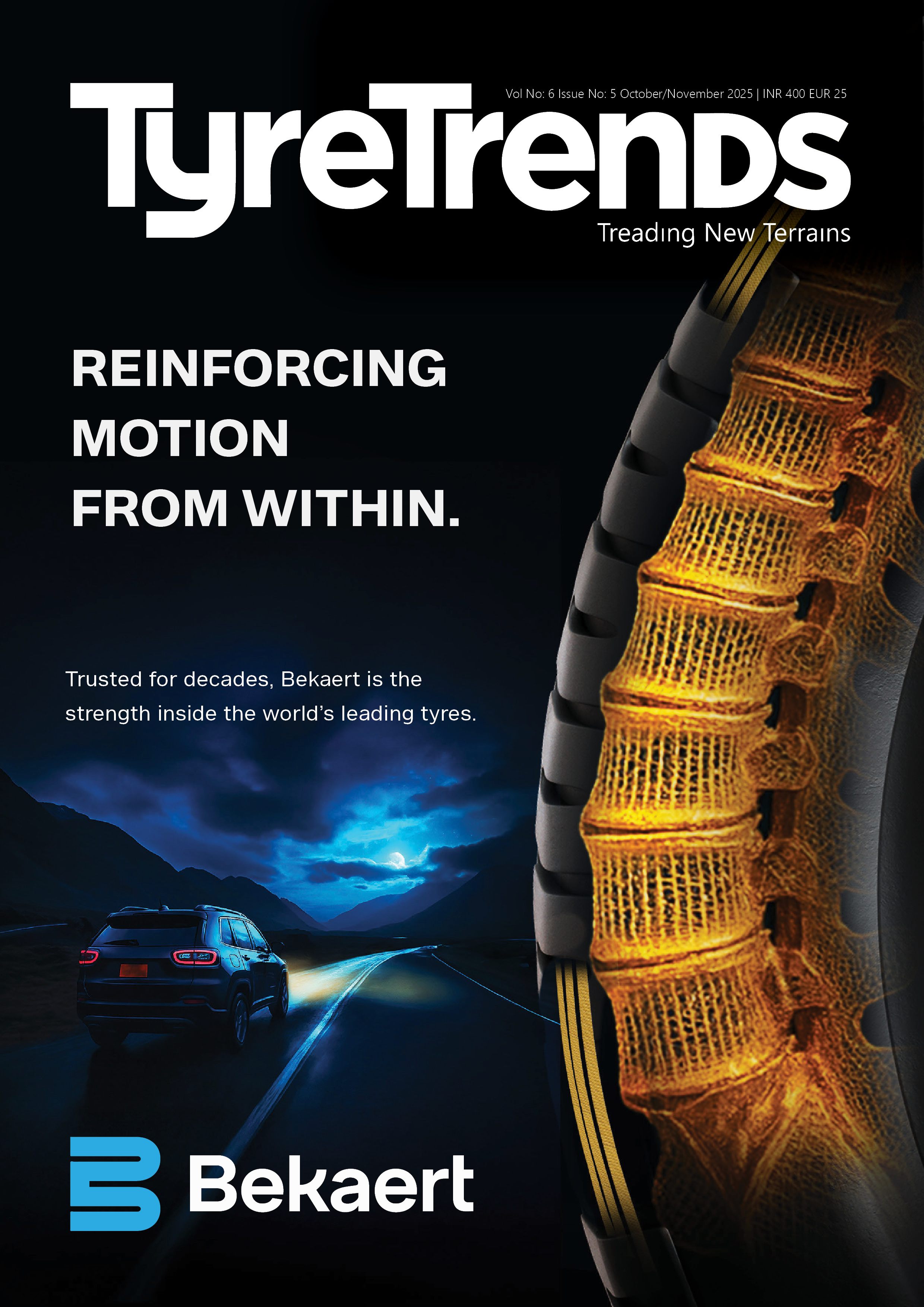



Comments (0)
ADD COMMENT